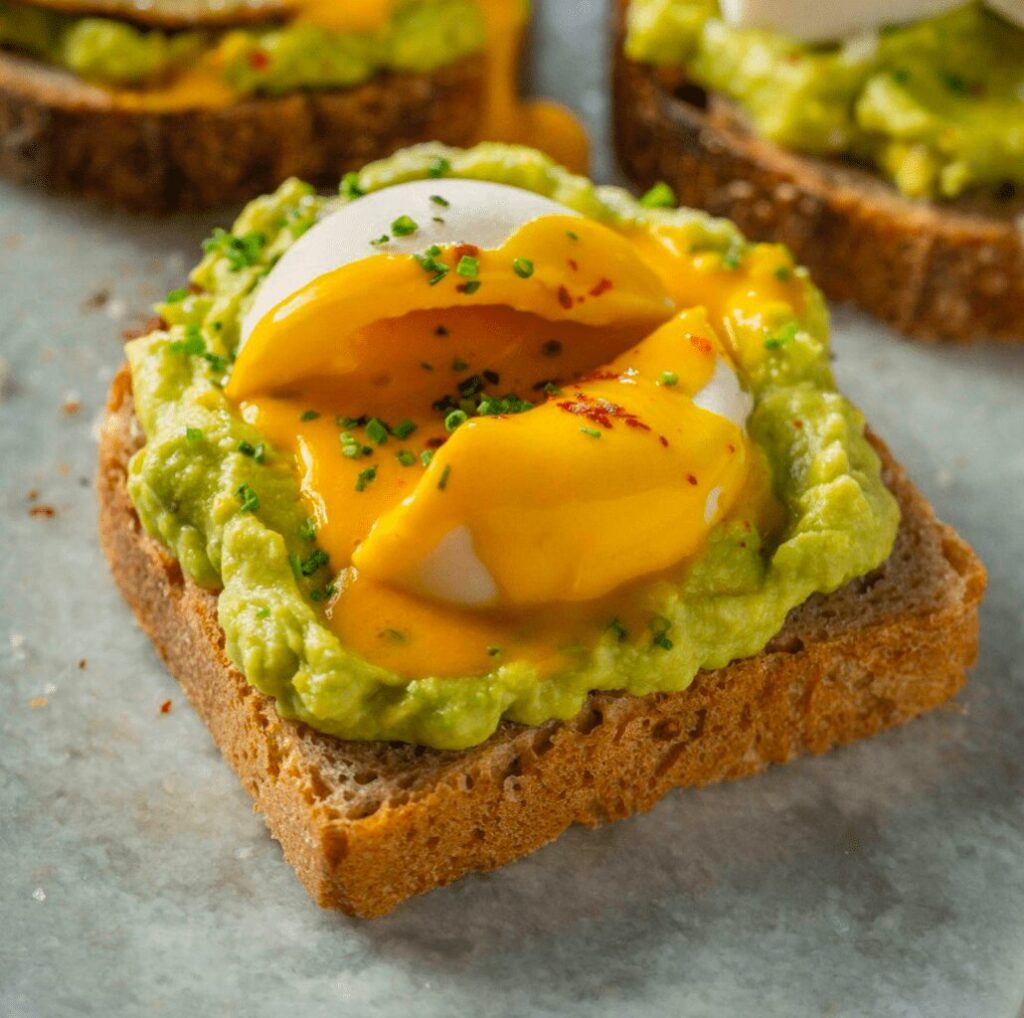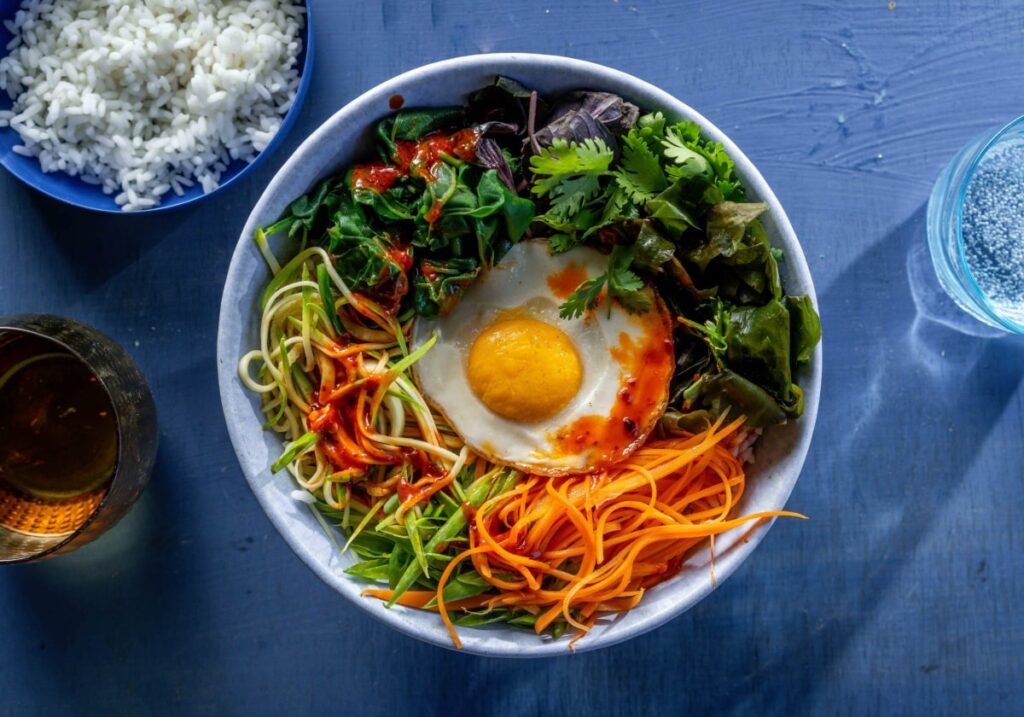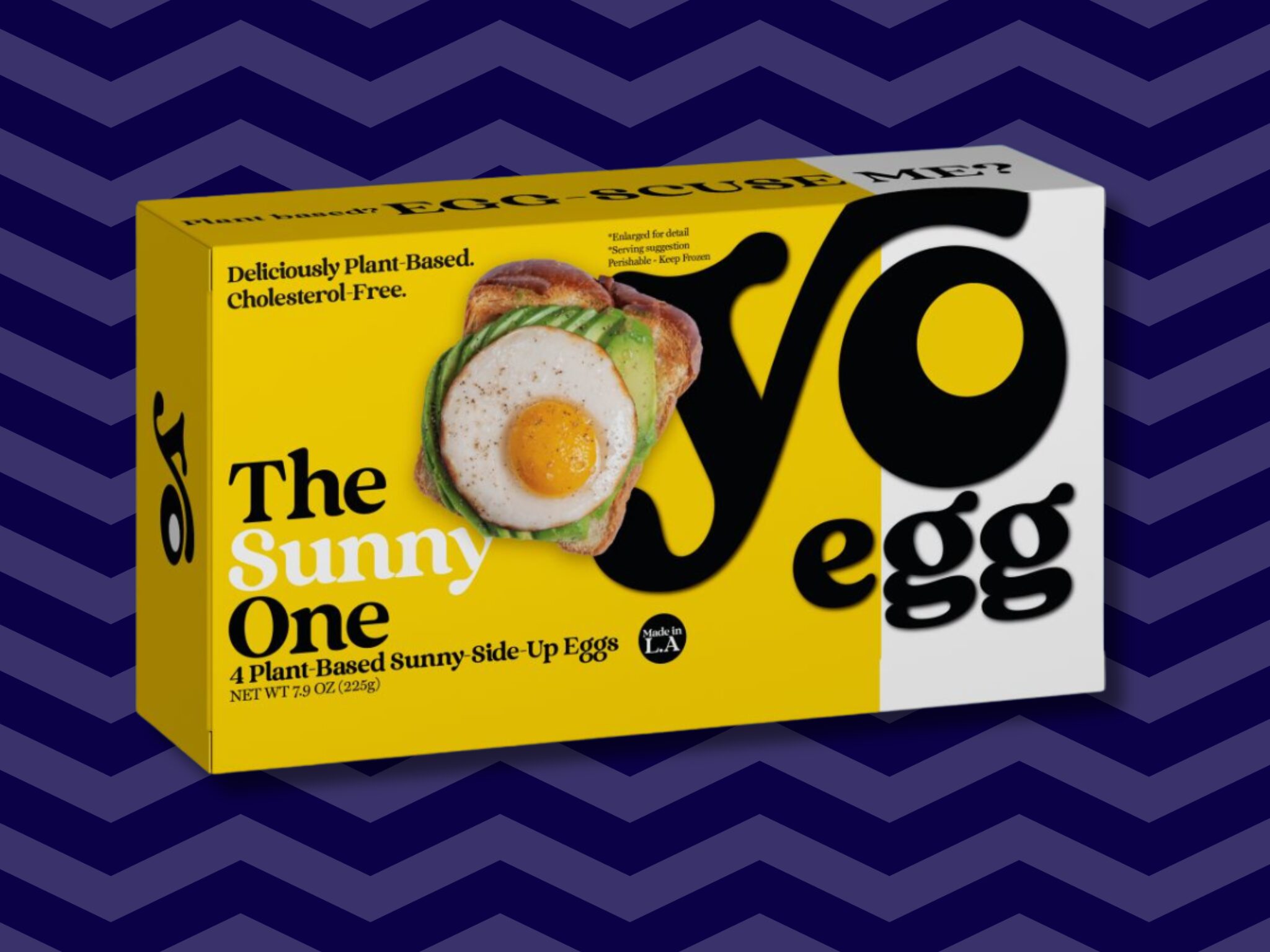5 Mins Read
Israeli food tech company Yo Egg is launching its vegan sunny-side-ups and poached eggs in US retail, starting with stores in Los Angeles, before a nationwide move next year.
A year after making its foodservice debut in Los Angeles, Yo Egg is moving into retail with its vegan fried and poached eggs, starting with the west coast.
Headquartered in Los Angeles, the startup will introduce its plant-based eggs in the city through a distribution deal with Whitestone Natural Foods. This will mean its products – which are priced at $6.99 for a four-pack – will be available in the freezers of Hanks Organic, Besties Vegan Paradise, Rainbow Acres Natural Foods, Follow Your Heart Market and PlantX (XMarket Venice), among others.
The company then plans to expand into California, New York and eventually nationwide next year. “We’re starting small with individual operators in the better-for-you natural foods category,” Yo Egg CEO Eran Groner told AgFunderNews. “Then we’re targeting regional players such as Bristol Farms, before going after accounts such as Sprouts and Whole Foods.”
Pondering co-manufacturing to scale up vegan egg production

Founded in 2021 by Groner and chef Yosefa Ben Cohen – who had developed the eggs with both restaurants and home cooks in mind – Yo Egg is the world’s first startup creating vegan fried and poached eggs, complete with runny yolks.
Unlike other plant-based egg companies, which either produce a powdered version or liquid eggs to make omelettes and scrambles, Yo Egg focuses on pre-prepped frozen sunny-side-up and poached eggs that can be boiled or fried. Made from a base of sunflower oil and chickpea and soy protein, the eggs leverage the startup’s patent-pending tech for whites and yolks (which are sealed using alginate, a seaweed extract).
The egg white system enables Yo Egg to produce the ideal structure for each format, and can be fried, poached or boiled. “It’s all about the phasing, timing and temperatures, not just the recipe, so it would be very hard to reverse-engineer it,” Groner explained.
Meanwhile, the company can make 50,000 yolks each day with a single piece of equipment. “In a room that’s 200 square feet, we can have four such machines, so that’s 200,000 yolks per day, which – if you do the math – is already a scaled egg farm in the United States if you have 200,000 birds laying eggs,” he noted.
Yo Egg currently has a pilot facility in North Hollywood, with which it can already compete with the prices of market leader Just Egg, whose scale is way higher (it recently announced the sale of the equivalent of 500 million eggs). But Groner, who said the company is hoping to bring retail prices down to $5.99 per pack, floated the idea of using a co-manufacturer too. “We would make the egg whites and the yolks and the co-manufacturer would form the egg, and we provide the plug-and-play equipment for that process. They form the egg and then they cook it, freeze it and package it,” he said.
“This way, we maintain the IP, the recipe and the protocol of mixing, and the yolk manufacturing using our specialised equipment,” he added, stating that after line testing with “a fairly big manufacturer”, the eggs came out better than what Yo Egg’s own equipment can deliver.
Yo Egg’s foodservice-first strategy

Yo Egg, which has raised over $5M in funding, made its debut in US foodservice last February, targeting brunch spots in Los Angeles, including Real Food Daily, Flore Vegan, Swingers Diner, Coyote Grill, and Loma Linda’s Vegan District Asian Eatery.
This was followed by a nationwide launch in April, with Yo Egg appearing on the menu at restaurants like Coletta and Beyond Sushi, and even the offices of Google. Its poached and sunny-side-up offerings are also part of menu options at fast-casual chain Veggie Grill (now owned by Next Level Burger).
This foodservice-first approach is a tried-and-tested strategy in the plant-based sector. Oatly, for example, debuted in the US through specialty coffee shops, with word of mouth and barista approval stamps propelling it to widespread popularity before its retail launch. A similar route to market was taken by plant-based meat giant Impossible Foods, which has an outstanding foodservice record and was specified by Groner as a reference point for Yo Egg.
“There are definitely advantages in launching a brand in foodservice before you go into retail. It’s easier to iterate quickly in foodservice, get rapid feedback, and iterate again. It doesn’t work like that in retail,” he explained. “What people like is that we’re going after every format of eggs. We’re starting with fried and poached eggs and we’re planning to launch a patty next quarter, where we already have major accounts signed up. This will be followed by hard-boiled eggs later this year, and a liquid yolk product next year.”
Yo Egg will hope these innovations allow it to take a large slice of the vegan egg market, which is currently dominated by Just Egg (it represents 99% of all sales in the sector). Other retail players include Follow Your Heart, Hodo, Simply Eggless, WunderEggs and Neat Egg, alongside private-label offerings from Target and Kroger – but succeeding in this space is tough. Plant-based eggs make up just 0.5% of the total US egg market, as of 2022. In terms of units, while plant-based eggs grew by sevenfold between 2019-22 to reach 10 million sales, animal-based egg sales were around 2.3 billion.
Additionally, the number of American households buying plant-based eggs was just 2% in 2022 – but the sector has outpaced dollar sales growth for animal-derived eggs, growing by 348% versus 67% for the latter from 2019-22, albeit with a much smaller base. So there has definitely been progress, but there’s room for a lot of progress too, given the scale of the conventional egg industry.
“Consumers like the fact that animals are not involved and it’s better for the environment, but what really drives consumption is you have a third of the saturated fat, zero cholesterol, and less sodium [compared to chicken eggs],” explained Groner. “And foodservice operators love the fact that finally, they have a plant-based option on their menu that they can be proud of. It’s a surprising, innovative, versatile product.”




